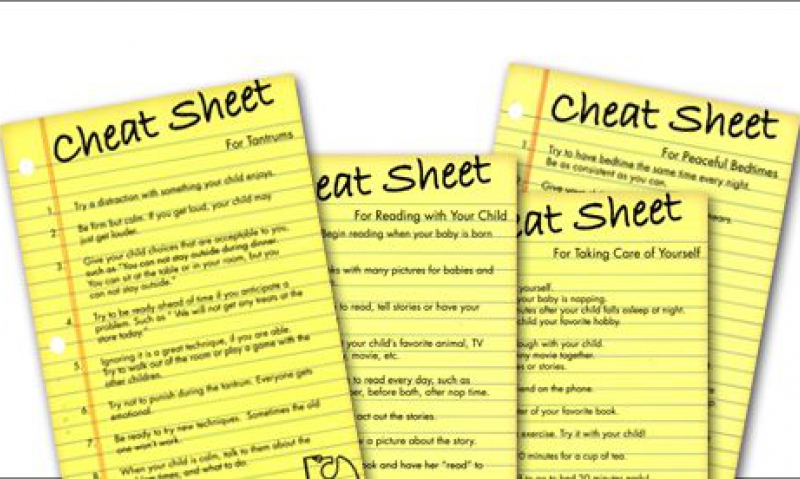
The National Exchange Club Foundation is protecting children from abuse and neglect with its $25,000 grant from The American Legion Child Welfare Foundation.
Since its establishment in 1954, The American Legion Child Welfare Foundation has raised more than $10 million to fund nonprofit organization projects that benefit the physical, mental, emotional and spiritual well-being of children. And in an effort to emphasize the positive impact the foundation has on America's youth, a grant recipient spoke during the Legion's recent fourth annual National Children & Youth Conference.
In 2010, the National Exchange Club Foundation in Toledo, Ohio, received a $25,000 grant for its national project, Child Abuse Prevention (CAP), from the Child Welfare Foundation. CAP supports and engages in a number of activities to increase awareness of child abuse and to prevent it. And for the past 30 years, CAP has helped 691,000 parents break the cycle of abuse, creating safer homes for more than 1,727,000 children.
"We have been very happy with some of the things we have developed with the grant from The American Legion Child Welfare Foundation," said Genevieve Stults, a program specialist with the National Exchange Club Foundation. "Because of the grant, we can now easily provide child abuse information to parents and caregivers of children through handouts and articles from our Web site."
With the grant, CAP updated, printed and distributed 1,000 child-abuse prevention kits and created a more user-friendly Web site for families. An added feature in the kits was six parent cheat sheets that feature tips for handling common childhood challenges. Each parent cheat sheet includes seven to nine tips on tantrums, reading with your child, toilet training, avoiding arguments, peaceful bedtimes and taking care of yourself. Click here to view and download the six parent cheat sheets.
The 23,000 Exchange Club members around the country hand the cheat sheets out to parents during community events, fairs or parent education programs. The members also place the handouts in doctors' offices and counseling centers. Meanwhile, the 75 Exchange Club Child Abuse Prevention Centers in 27 states, who work one-on-one with at-risk parents, will highlight one or two of the tips on the cheat sheets for parents. The highlighted tips give parents a chance to problem solve and think about what steps will work best for them in preventing child abuse. From there, the center continues to encourage and support the chosen steps.
"Our centers have found the parent cheat sheets very successful," Stults said. "An important one is toilet training because it's a stage in a child's life when they are most at risk for child abuse and neglect due to it being a stressful time for parents. What we have found with families is that they don't have a strong understanding of when is a good time to toilet train kids. We also try to remind parents that when they are feeling stressed, they need to take care of themselves. If they don't, it creates a much more difficult time for children.
"Overall, with the parent cheat sheets, we tried to pick out certain stressful times for parents with their children or times when parents need extra pointers to give them ideas about how to work with their children."
Additionally, when it came to enhancing the CAP Web site, the focus was making a variety of parenting topics readily available for all caretakers of children. To date, articles featured on the site include child development, behavior management techniques, talking with children about abuse/neglect, warning signs of abuse/neglect and parenting tips. Click here to view the Web site.
"I think the parent cheat sheets and the new articles on our Web site have really reached out and helped a lot of families this year," Stults said. "The Child Welfare Foundation grant is enabling us to better protect our children."
As a result of the continuous donations to the Child Welfare Foundation from members of the Legion, Auxiliary, Sons of the American Legion, Eight & Forty and others, the foundation is able to help nonprofit organizations like the National Exchange Club Foundation protect and care for America's youth.
Donations can be collected through multiple ways, one being the "100% banner." For a post to receive the banner, every member must donate $1 to the foundation. Last year, $108,000 was raised from proceeds of the banner.
Another way to raise funds is through plastic piggy banks donated by The American Legion National Headquarters. Posts can use their imagination on ways to collect money with the banks. For example, one Legion post held a barbecue and as a ticket to eat, attendees had to bring the piggy bank filled with the amount of money they felt the dinner was worth.
More importantly, if all local Legion family member organizations contributed $25 annually to the Child Welfare Foundation, more than $700,000 would be generated.
To learn more about The American Legion Child Welfare Foundation and how to donate or apply for a grant, click here.
- Child Welfare

